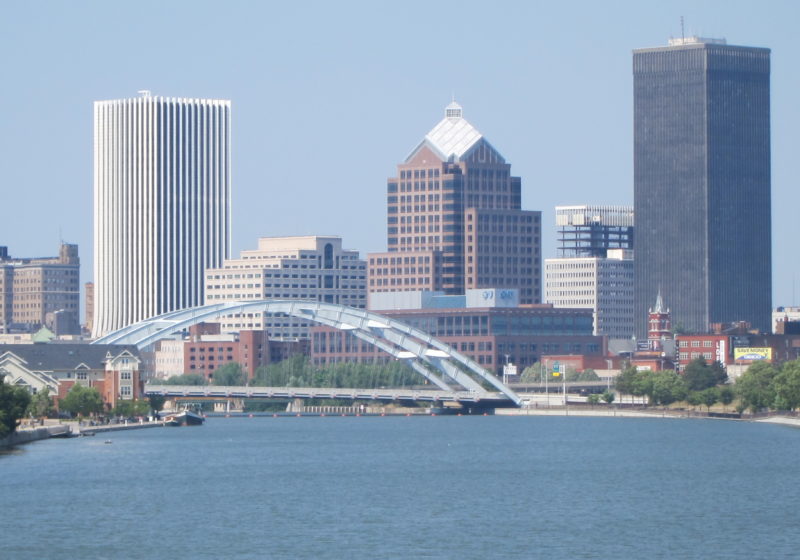The Frederick Douglass Institute (FDI) hosted a public forum on July 30 for the UR community to share their experiences with racism in education and explore ways the university can strive for an anti-racist education.
“One good start would be orientation,” said senior McKenzie Williams.
For Williams, orientation lacked sufficient engagement with topics like disability, race, and gender, which, depending on a student’s background, could be completely new territory. “We do One Community, we do Wilson day, […] but it feels kind of performative, almost to where it’s happening so you can put it on paper,” Williams said.
“It shouldn’t be that engagement is one day of picking thrash — it’s got to be deep […] sustained engagement with community and community organizations,” said University President Sarah Mangerlsdorf.
Warner School of Education graduate student and Admissions Office Senior Counselor Demeara Torres added that she felt many students never left campus and were unfamiliar with Rochester’s relevant recent history. Some attendees felt that an orientation screening and discussion of “July ‘64”, a documentary that looks into the uprisings of the summer of 1964 and their present implications, could help solve this problem. Torres also recommended Wilson day contain a deeper exploration of the problems plaguing the city, and an explanation of ways students can get involved.
Given that orientation is only a week, and students already get bombarded with a lot of information, Dr. Jessica Guzman-Rea, director of the Burgett Intercultural Center, thought that “a year-long experience would serve better.”
Mechanical Engineering professor John Lambropoulous stressed the importance of a University-wide educational component involving all students as an ideal way to educate an anti-racist curriculum. This could take the form of required core courses that touch on Black history for everyone, something co-host of the forum community educator Calvin Eaton said was already happening in other schools.
Black Students Union (BSU) vice president and junior Mauricio Coombs suggested expanding the tracks currently offered for African and African American Studies at the FDI as he posits that the three tracks are all rooted in slavery.
“I heartily agree […] about expanding what is treated as Black people’s experience or history in the U.S.” said Warner professor Nancy Ares. “There’s so much more that can challenge the ‘single story’ of enslavement.”
History Professor Joan Rubin said that many of the things students were requesting are already being offered — students just don’t take those classes. Rubin pointed to UR’s open curriculum as a large barrier to formalizing anti-racist education for students.
“We need to rethink the Rochester curriculum if we want to ensure that all our graduates acquire the knowledge that will permit them to go forward with anti-racist perspectives and to be anti-racist,” Rubin said.
Another long standing challenge that was discussed was the lack of faculty diversity. BSU President and junior Daisha Danson highlighted the need for more Black scholarship in the political science department. Former FDI director and current African-American studies Professor Cilas Kemedjio, said that he believes the most pressing issue has been retention, stating that in recent years the Dean’s Office hasn’t been aggressive enough in advocating for FDI faculty. He further explained that it’s up to department discretion to hire who they want, and said the Dean’s and President’s Offices should advocate for more faculty of color.
Other issues raised during the forum included making the Douglass Leadership House (DLH) permanent, and turning the FDI into a department. Many of the issues raised throughout the forum were also listed in the #URBlackLivesMatterReloaded petition. Administration members present in the call expressed interest and support for many of the initiatives discussed. Dean of the College in Arts, Sciences and Engineering Jeffery Runner described strengthening DLH’s presence on campus by improving the amenities of the house, and increasing its relevance to the rest of campus. He did not explicitly mention making DLH a permanent house on campus.
“We have a tremendous opportunity to move forward now,” Dean of the Faculty of Arts, Sciences and Engineering Donald Hall said. “We have to understand what has happened at this University, what has happened in the community of Rochester, because we don’t want to repeat those mistakes. We have the chance to seize the moment, and actually make change at this University.”





